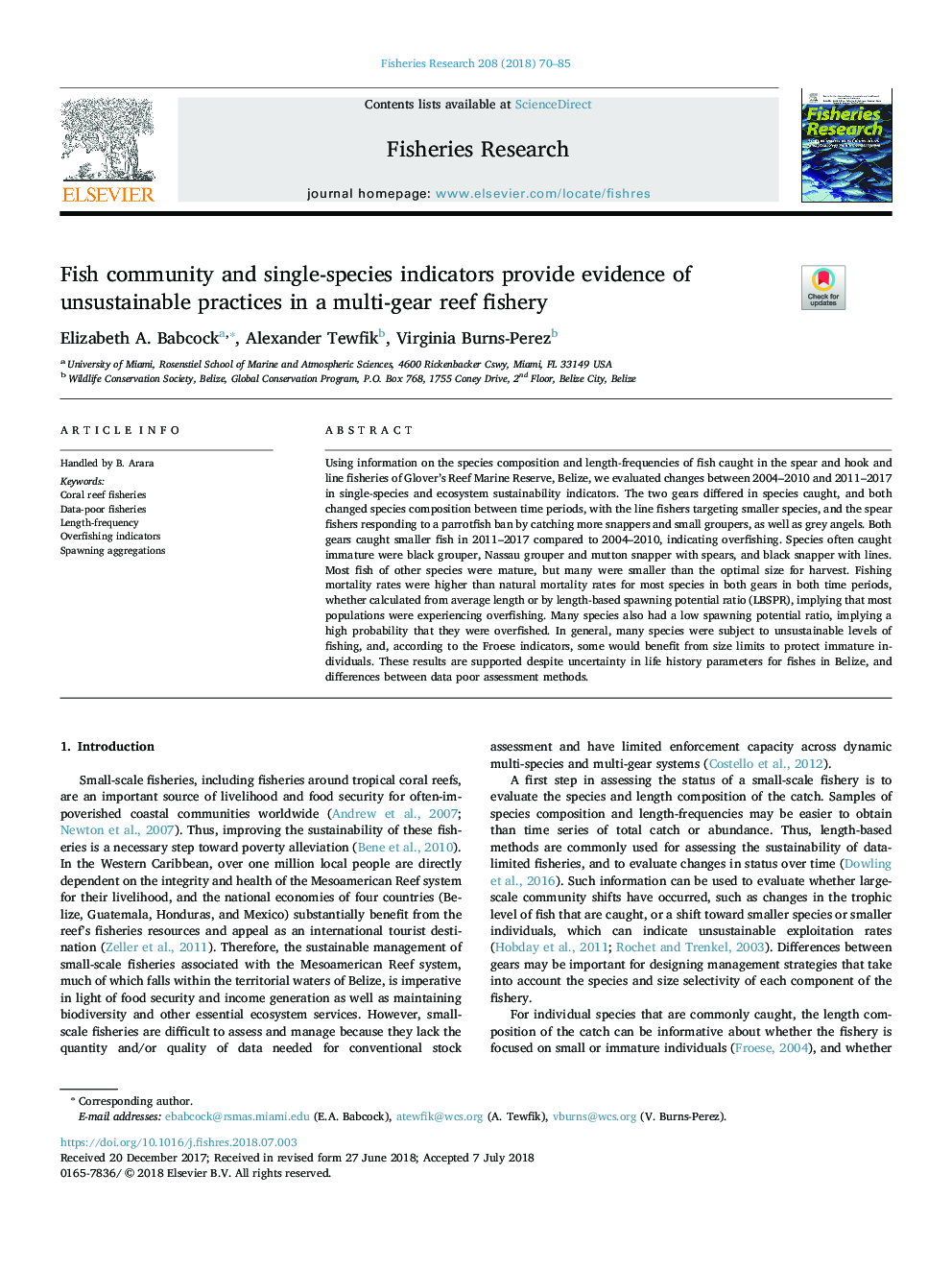| Article ID | Journal | Published Year | Pages | File Type |
|---|---|---|---|---|
| 11033178 | Fisheries Research | 2018 | 16 Pages |
Abstract
Using information on the species composition and length-frequencies of fish caught in the spear and hook and line fisheries of Glover's Reef Marine Reserve, Belize, we evaluated changes between 2004-2010 and 2011-2017 in single-species and ecosystem sustainability indicators. The two gears differed in species caught, and both changed species composition between time periods, with the line fishers targeting smaller species, and the spear fishers responding to a parrotfish ban by catching more snappers and small groupers, as well as grey angels. Both gears caught smaller fish in 2011-2017 compared to 2004-2010, indicating overfishing. Species often caught immature were black grouper, Nassau grouper and mutton snapper with spears, and black snapper with lines. Most fish of other species were mature, but many were smaller than the optimal size for harvest. Fishing mortality rates were higher than natural mortality rates for most species in both gears in both time periods, whether calculated from average length or by length-based spawning potential ratio (LBSPR), implying that most populations were experiencing overfishing. Many species also had a low spawning potential ratio, implying a high probability that they were overfished. In general, many species were subject to unsustainable levels of fishing, and, according to the Froese indicators, some would benefit from size limits to protect immature individuals. These results are supported despite uncertainty in life history parameters for fishes in Belize, and differences between data poor assessment methods.
Related Topics
Life Sciences
Agricultural and Biological Sciences
Aquatic Science
Authors
Elizabeth A. Babcock, Alexander Tewfik, Virginia Burns-Perez,
